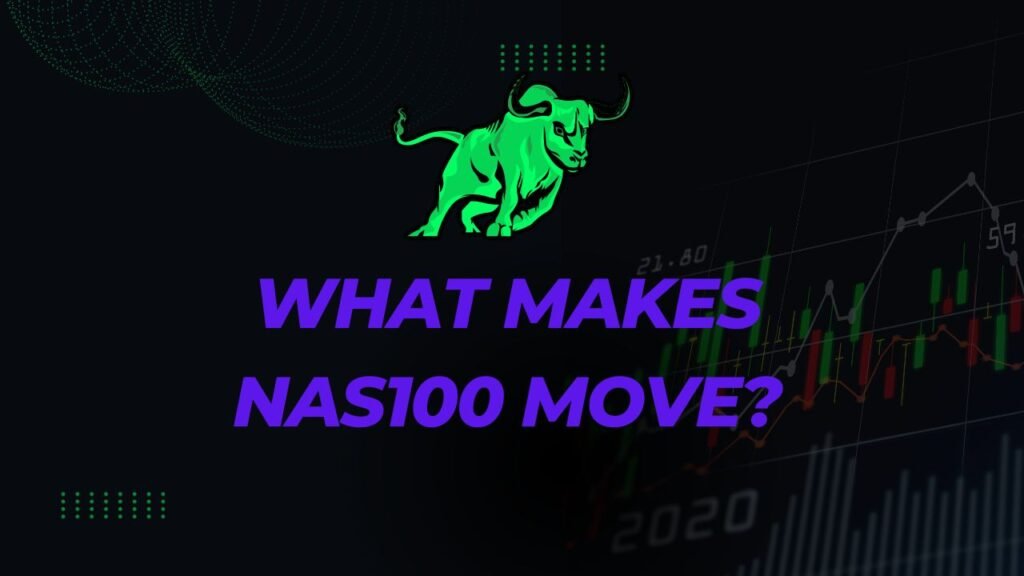
The NAS100, also known as the Nasdaq-100 Index, is a dynamic and influential stock market index that comprises the 100 largest non-financial companies listed on the Nasdaq Stock Market. This tech-heavy index is known for its remarkable movements, but what exactly drives these fluctuations? Let’s dive into the key factors that make NAS100 move.
1. Technological Innovation
The NAS100 is closely tied to the tech sector, which is a hotbed of innovation. The index includes giants like Apple, Amazon, Microsoft, and Google’s parent company Alphabet. Technological breakthroughs, product launches, and advancements in artificial intelligence, cloud computing, and other tech domains can significantly impact the NAS100’s movement.
2. Earnings Reports
Earnings reports are crucial for understanding a company’s financial health. Positive earnings reports from NAS100 constituents can boost investor confidence and lead to upward movements. Conversely, disappointing reports can trigger declines. Monitoring quarterly earnings releases is essential for predicting index movements.
3. Macroeconomic Indicators
The broader economic landscape plays a role in the NAS100’s movement. Economic indicators like GDP growth, unemployment rates, and consumer spending influence investor sentiment. A strong economy can push the index higher, while economic uncertainty might lead to sell-offs.
4. Interest Rates and Monetary Policy
Central bank decisions, especially those related to interest rates and monetary policy, have a ripple effect on the financial markets. Lower interest rates can encourage borrowing and investment, potentially driving NAS100 companies’ stock prices higher.
5. Market Sentiment and Speculation
Emotions and speculation play a significant role in market movements. Positive news, investor optimism, and overall positive sentiment can lead to buying frenzies that push the index upward. On the flip side, negative news or uncertainty can trigger panic selling.
6. Global Events and Geopolitics
Global events, such as geopolitical tensions, trade disputes, and major political changes, can have a profound impact on the NAS100. These events can create volatility and influence investor behavior as they assess potential risks and opportunities.
7. Sector Rotation
Investors often shift their focus between different sectors based on market conditions and trends. If a particular sector within the NAS100 shows promise, a rotation of funds can lead to increased demand for stocks in that sector, affecting the overall index movement.
8. Market Liquidity
Liquidity refers to the ease of buying or selling assets without causing significant price fluctuations. Higher liquidity often leads to smoother market movements. If trading volumes are low, sudden buy or sell orders can lead to more pronounced price swings.
9. External Disruptions
Natural disasters, public health crises, and unforeseen events can disrupt markets and impact the NAS100. The COVID-19 pandemic, for instance, caused widespread uncertainty and rapid market fluctuations.
10. Technical Analysis and Algorithmic Trading
Technical analysis and algorithmic trading strategies play a role in determining buy and sell decisions. Traders rely on patterns, trends, and mathematical models to predict market movements, which can contribute to the index’s volatility.
In conclusion, the NAS100’s movement is influenced by a complex interplay of technological advancements, economic indicators, investor sentiment, global events, and more. Understanding these factors is essential for investors looking to navigate the ever-changing landscape of this tech-driven index.
Remember, while these factors provide insights, predicting market movements remains challenging due to the multifaceted nature of the financial markets.
Disclaimer: This article is for informational purposes only and should not be considered as financial advice. Always do your own research and consult a financial advisor before making investment decisions.